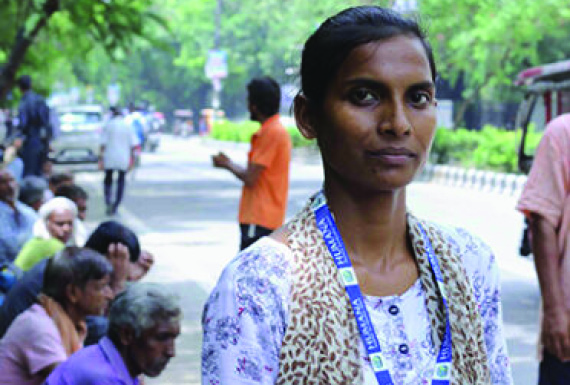The Human Touch

“People need people. We need each other to connect and express,” states Mamta. She is a twenty-six-year-old TB Affected Street Activist (TASA) in New Delhi. She works with the homeless, migrant and poor community of the city who are more susceptible to contracting TB and suffering without getting treatment. She spreads awareness about the symptoms of the disease in the homeless community. Mamta then gets the symptomatic people tested for TB. Subsequently, if the test confirms the disease, Mamta helps the patients with their treatment. She follows up with them regularly so that they don’t drop out of the treatment. She ensures that they take the medicines regularly and counsels them about the disease’s dos and don’ts. Regular intake of TB medicines is crucial; most patients drop out due to the sheer desolation that follows during the treatment. Besides the disease being debilitating physically, limited social interaction slowly can to take a toll on their mental well-being.
Mamta developed empathy when she became aware of the isolation one feels with the disease. She too was affected by TB in 2022 and felt shunned by society. With her family and friends’ support she recovered in seven months. This experience motivated her to reach out to others who have suffered from the disease. Initially, Mamta, a shy woman, found it hard talking to people while working in the field. Soon she found her way to engage with strangers; she learnt she had to listen to people sensitively. According to Mamta, “My ability to reach out to people and connect with them has improved my confidence.”
TB tends to affect the most marginalised groups heavily. People who live in poorly ventilated and overcrowded conditions, suffer from malnutrition and diseases and have limited access to healthcare are most at risk. HPPI is reaching out to the homeless in Delhi who are affected by the disease and connecting them with the healthcare system. Through HPPI’s interventions, TB Affected Street Activists (TASAs) provide the social support that all homeless people lack. These activists have themselves been affected by the disease and understand what it takes to come out of the vicious cycle. A human touch can make all the difference in eliminating the disease.
